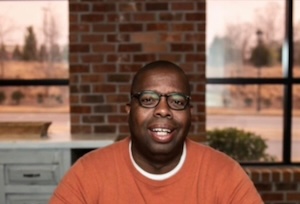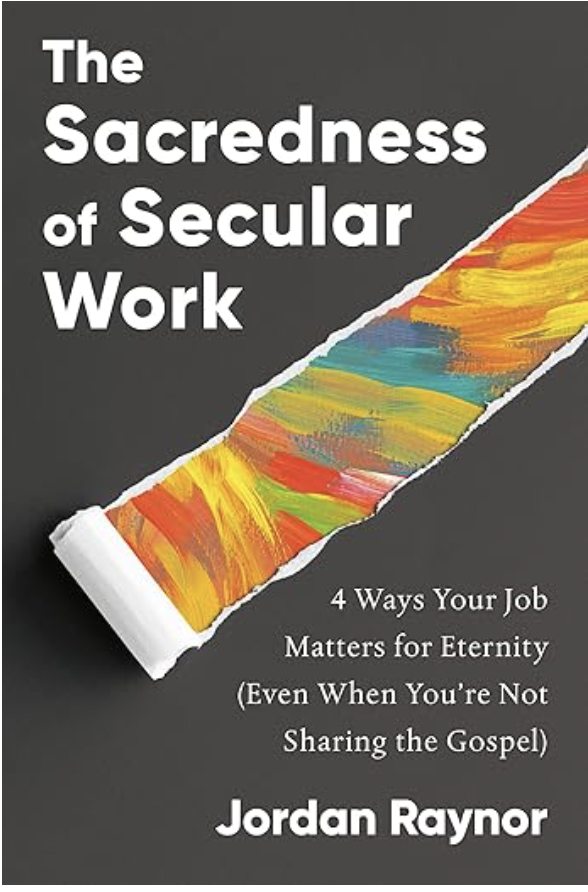
Author and speaker Jordan Raynor believes, and wants others to believe, that God has called Christ Followers to find sacredness in the work that they do in their secular jobs.
Author and speaker Jordan Raynor believes, and wants others to believe, that God has called Christ Followers to find sacredness in the work that they do in their secular jobs. Raynor, known by many as an influencer, leader and podcaster, believes that when we show up to work with God by our side that meaningful things can and will happen for God’s Glory. In a sit-down interview with ChristianHeadlines, Raynor opened up about his desire to start a movement among Christ Followers to bring sacredness to their secular work. Raynor believes that when we bring sacredness to our workspace, we are living out the mandate of the Gospel in being the hands and feet of Jesus. For Raynor, bringing the Gospel into our workspace no matter what we do for a living, is bringing Christ alongside with us into the secular environment of our lives, therefore bringing light and sacredness into our workspace.
CH: Why did you decide to write The Sacredness of Secular Work?
Jordan: It wasn't one moment. It was a lot of moments that led to the same conversation that I kept having over and over and over again. I spend most of my time creating content that helps Christians see how their work matters for eternity, and then conversation after conversation, I would tell an entrepreneur or a teacher or barista that their work matters for eternity, the most immediate response was, "Oh my job is my mission field." That is of course gloriously true, but man, if that's the only way that our work matters for eternity, when we're sharing the gospel explicitly, then most of us are wasting most of our time. How much time does the average person spend walking somebody through the Romans road on a weekly basis? I want to help my tribe see how every Zoom meeting they leave, every Uber they drive, every story they write, every diaper they change has the potential to matter. It was a lot of those moments that built up over time where I was like, we've got to move the faith-of-work conversation beyond excellence and ethics and evangelism. We can show the Gospel, but that's a fraction of our life, so what about the other 99.9% of the time, does that matter to God? And the emphatic answer in Scripture is yes. So that's my goal with this book, just to help believers see how a hundred percent of their time can matter for eternity.
CH: In the book, you mention Tim Keller being influential in your life. How was Tim influential in your life?
Jordan: The backstory to really understand what he meant to me is this: before I created content like this full time, I spent 10 years as a tech entrepreneur. And about halfway through that journey, five years into my career, I was in the process of selling my second company. I was trying to figure out what I was going to do next. When you sell two companies, the natural thing to do is start a third, right? So that was kind of the plan. I remember going to church one Sunday. We had a guest preaching a sermon that sadly so many Christians are so familiar with. It was a sermon that made me feel guilty. How dare I want to go start another business when there's a need for people to move to mud huts 5,000 miles away from home to make disciples of all nations? I felt guilty, which lead to a conversation with a friend that would lead me to read my first Tim Keller book, which would lead me into doing what I do today. Tim's the reason why I'm doing this work today. I got to know him. A few months before he died, we were talking, and I was just thanking him for being responsible for me seriously following Jesus today. But number two, for the work I'm doing today. It was pretty amazing. He was just able to speak some incredible words of blessing over the work I'm doing and the importance of it. I miss him dearly.
CH: You mention that there are four ways that a person’s job matters for eternity. What are those four ways?
Jordan: I say in the introduction of this book, I'd be a fool to call this an exhaustive list. This is not an exhaustive list of all the ways our work matters for eternity. I took several notes over the last four or five years and these four themes seemed to rise to the top. Number one, our work is a vehicle for bringing God pleasure. Number two, our work is a primary means by which we accumulate eternal rewards - a topic I don't think we talk enough about in the church. Number three, our work is a way that we scratch off glimpses of the kingdom. And then of course, the most obvious number four, our work is a primary means of making disciples in this world, especially in our post-Christian context.
CH: Throughout the book, it seems like you were fired up in getting the point across that our work matters for eternity?
Jordan: 100 percent. There are a lot of things I say in the book that I have never said before. I wanted to wake up the Church. I'm saying it in a more preachy way because I think this is what's required to wake the Church up to the depth of this problem. It's why the introduction of this book is called, "What if the Great Commission Isn't What It's All About?" It's why chapter one is called "The Unabridged Gospel." I'm intentionally using these terms as smelling salts. The truth has become way too familiar to us. Given the ultimate trajectory of Jesus' life and redeeming all of creation on the cross, the fact that he spent 80 percent of his adult life swinging a hammer or carving stones? He could have grown up in the home of a priest like John the Baptist, where he would spend all day long praying. He could have grown up in the home of a Pharisee like Paul, where he would spend all day studying Torah. But God is sending us a message when he chooses for Christ to live in the home of a carpenter where he would spend most of his days doing work that looks pretty similar to what most Christians are doing right now. If that does not give us intrinsic value for the work we're doing in the world, I don't know what does. I was preaching with the keyboard, but I'll tell you what, more than in any other book before.
CH: When you’re writing a book, you have an exercise that you do to help you keep the reader front-and-center. What is that?
Jordan: I always print out who I'm writing for and put it on the wall as a picture. I printed pictures of people who I knew were going to have a hard time hearing this message. I literally would look at the pictures of certain people. Tim Keller gave me this advice of reading a manuscript out loud. I read it out loud, and looked at the pictures on the wall while doing so.
CH: Why do you think your audience resonates with you?
Jordan: I’ve heard people say a few things: I've never been a pastor or religious professional. I try to be authentic and normal.
Image credit: ©GettyImages/lovro77








